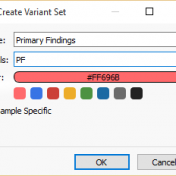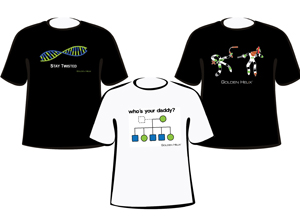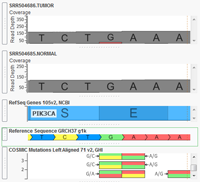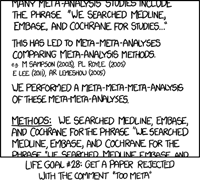There is no doubt that we have big data in the field of genomics in general and Next Generation Sequencing specifically. Illumina’s latest HiSeq X can produce 16 genomes per run, resulting in terabytes of raw data to crunch through. Yet all that crunching is not the hard part. So, what is the main obstacle to scientists being able to… Read more »
Golden Helix in 2016 We had a terrific year 2015. It was the year in which we got serious about the clinical testing market. We successfully continued on the path of attracting more referenceable clients such as University of Iowa, Baby Genes, Prevention Genetics and many more. We rounded out our VarSeq suite by adding more clinically relevant features and… Read more »
With the release of VSReports, we added the ability to “select” rows of your filtered output (often variants, but potentially things like coverage regions or genes) with a new feature dubbed “Record Sets”, but more often described as “colored checkboxes” for your tables. Although necessary for the important task of marking primary, secondary or other sets of variants for a… Read more »
Our webcast yesterday featured two clinical workflows and and the ease in moving from an unfiltered variant file to a clinical report containing the variants of interest using VarSeq and VSReports. There were several great questions and I wanted to pass on a few of particular interest. Question: Are annotation sources included in VarSeq for free?
While VarSeq comes with a number of starter workflows that are stored as templates, customers also have the option of creating filter chains from scratch; analyzing a single exome may require you to do exactly that. In this blog, I’ll go through analyzing a single exome and generating a list of variants for further study. After importing the variant data… Read more »
The Golden Helix® team is gearing up for ASHG 2015 in Baltimore as I would guess many of you are too. I for one am super excited since I grew up in the Baltimore area and have a fondness for Inner Harbor and crabs! This year, you will find Ashley Hintz (our Field Application Scientist) and myself just inside the… Read more »
A widely attended conference that is coming up on September 21-23 is the third international conference on Genomics 2015 in San Antonio, Texas. The theme of this year’s conference is “Implications and Impacts of Genomic Advances on Global Health“, which promises to provide some interesting presentations and discussions. Current issues in the field to be addressed include next-gen sequencing, clinical and… Read more »
When it comes to down to it, the genomic variants we collect in a research and clinical setting are impossible to interpret without that important link of how genes are related to phenotypes. Indisputably, the Johns Hopkins project to catalog all evidence related to inheritable Mendelian diseases is our best repository of this evidence. Online Mendelian Inheritance in Man (OMIM)… Read more »
A common question that comes through support is if there are options in SVS for doing gender inference or checks. There is indeed functionality in SVS for this QC check! This function is under the Genotype Menu for Sample Statistics; there are a lot of great statistics available to check the quality of your data in SVS, but I’ll walk… Read more »
GWAS became possible about 10 years ago as the result of several scientific advances. Since then, GWAS has continually developed as a primary method for identification of disease susceptibility genes in humans and other organisms. At Golden Helix we are proud of our history in supporting GWAS analysis from its inception. Our software was used to analyze whole-genome data from… Read more »
Earlier this spring we announced that Meta-Analysis was coming to SVS very soon. Now, I am pleased to announce that it is available in the latest release of SVS (version 8.4.0). Meta-Analysis takes the results of two or more GWAS studies for multiple SNPs or markers, and standard meta-analysis statistics are then performed on each SNP and the results compiled into… Read more »
VarSeq now supports analysis of paired Tumor/Normal samples! Tumor/Normal support has been one of the most common feature requests for VarSeq since it was launched late last year, and we are excited to make this functionality available to all of our VarSeq users in the latest update (version 1.1.4). VarSeq is a powerful platform for annotation and filtering of DNA… Read more »
Recently, Golden Helix, Inc. announced the addition of VSPipeline to our VarSeq software suite. VSPipeline is a command-line interface that will allow high throughput environments the ability to tap the full power of VarSeq’s algorithms and flexible project template system from any command line context, including existing bioinformatics pipeline. So, what is the big deal? Here are the top five… Read more »
Just a few weeks ago we announced our partnership with MedGenome. The news was covered by a number of outlets including: Financial Express Pharmabiz Let me expIain the importance and impact of this announcement. Since Varseq was released, we have received strong interest from testing labs that are leveraging our product to implement cancer diagnostic pipelines. Please feel free to take… Read more »
There’s a strong desire in the genetics community for a set of canonical transcripts. It’s a completely understandable and reasonable thing to want since it would simplify many aspects of analysis and especially the downstream communicating and reporting of variants. Unfortunately, biology isn’t so tidy as to provide a clear answer for which transcript is the important one. Consequently, there… Read more »
The Educational Challenge Precision medicine will fundamentally change how health care is practiced. Of course, we have a long way to go. For most practitioners today, their knowledge of the human genome was established many years ago. However, new therapies and diagnostic methods are pouring in on a daily basis. So, how do we make sure that the current and… Read more »
Bioinformatics Pipelines and Systems Infrastructure The genetics industry is undergoing a fundamental shift from a clinical science focus to a bioinformatics focus. Genetic services require a greater level of data analytics sophistication than is required for other laboratory testing. Currently, data generated by new tests overwhelms current information technology systems and human interpretation capabilities. This is one of the reasons… Read more »
Meta-analysis is an important tool to have in the bioinformatics toolbox. The numbers alone speak for themselves. It is the fourth most requested feature for SVS, and a simple google scholar search for 2014 and 2015 find 17,300 results for genetics + meta-analysis. There are several meta-analysis utilities out there that will take results from studies and perform the meta-analysis…. Read more »
As VarSeq has been evaluated and chosen by more and more clinical labs, I have come to respect how unique each lab’s analytical use cases are. Different labs may specialize in cancer therapy management, specific hereditary disorders, focused gene panels or whole exomes. Some may expect to spend just minutes validating the analytics and the presence or absence of well-characterized… Read more »
Last week we conducted a webcast on “Cancer Gene Panels”. We had some excellent questions which we answered during the webcast and a few more that we didn’t get to in the allotted time. Please find answers to those questions here: 1. Are Cancer Gene Panels just another stepping stone on the way to whole exome/genome analysis? Cancer gene panels answer… Read more »















